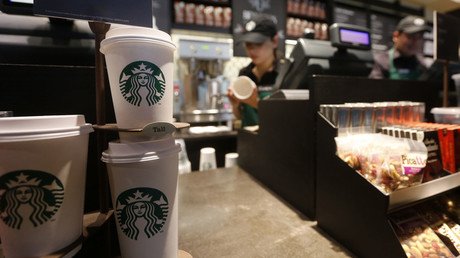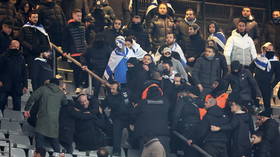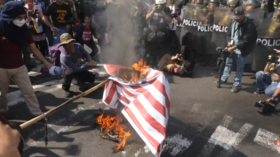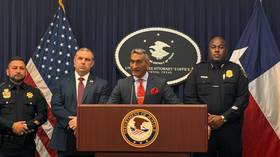Plan to hire refugees damaging Starbucks’ brand and sales - Credit Suisse
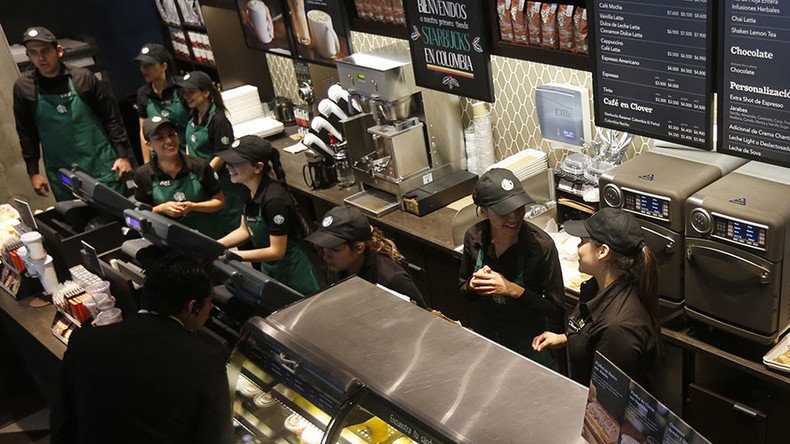
Swiss financial services company Credit Suisse has warned that Starbucks’ decision to employ 10,000 refugees in protest against President Trump’s travel ban is having a negative impact on the coffee giant’s sales and brand.
“Our work shows a sudden drop in brand sentiment following the announcement of the refugee hiring initiative on January 29, to flattish from a run-rate of ~+80 (on an index of -100 to +100). Net sentiment has since recovered but has seen significant volatility in recent weeks,” Credit Suisse's equity analyst Jason West wrote in a recent report.
Starbucks’ announcement followed the US President’s executive order temporarily banning refugees from certain Muslim countries. The company said it would start hiring refugees in its stores worldwide and focus on immigrants in the US.
Shortly after that, the company took a major hit. According to the survey from YouGov BrandIndex, Starbucks' consumer perception levels fell by two-thirds from late January through the end of February. The study showed that 30 percent of respondents considered spending money at Starbucks, but after the announcement, the figure dropped to 24 percent.
The company’s new hiring policy immediately sparked a #BoycottStarbucks movement on Twitter with many Americans angry over hiring refugees and slighting US citizens, especially military veterans.
Drink or boycott? Starbucks coffee war erupts on Twitter over US immigration policy https://t.co/TPeovjbSdf
— RT America (@RT_America) January 31, 2017
Moreover, Starbucks’ share in US restaurant foot traffic declined to 11 percent in February from 12 percent a month earlier, according to xAd, a research firm that uses location signals from mobile phones to track data.
In January, Starbucks reported a two percent decline in transactions, that is also an important measure of customer traffic. The company has tied the drop to problems caused by its recently introduced mobile ordering service. Bottlenecks created by a wave of mobile orders at busy stores resulted in crowds that turn some customers away.
